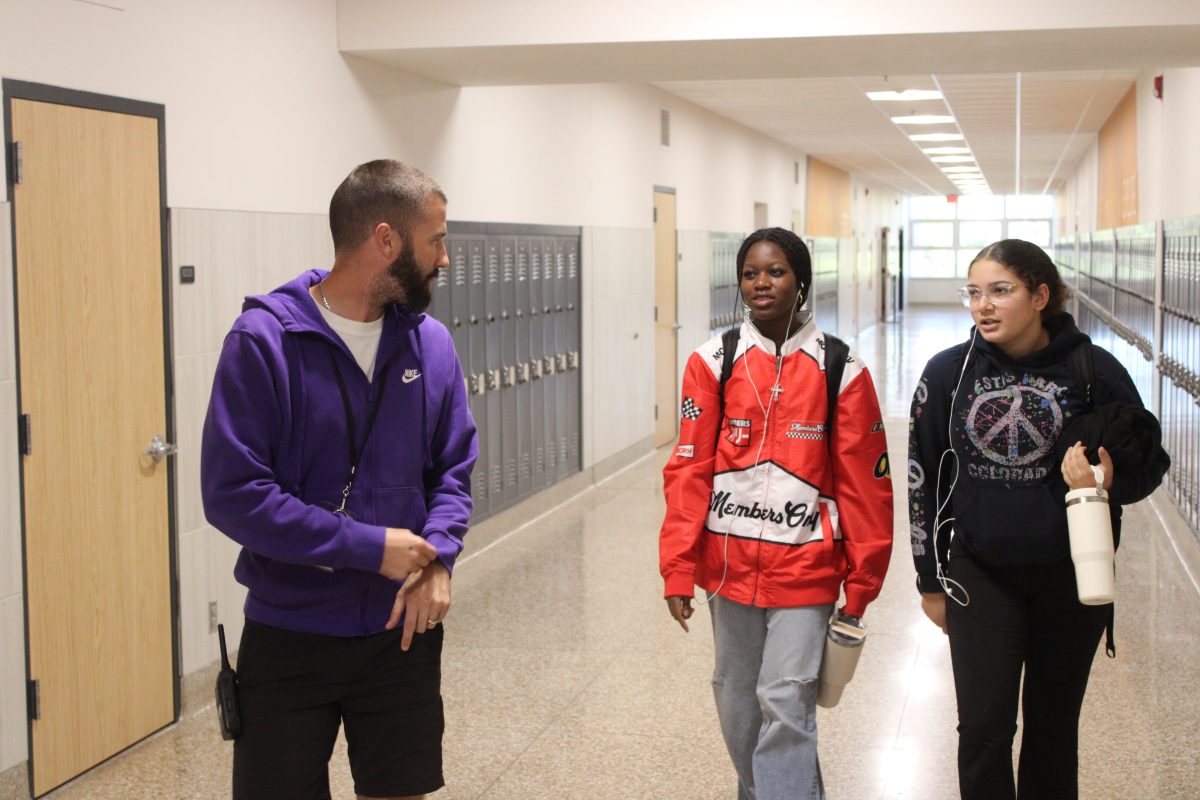PCP: Block scheduling
The final week of the semester comes with a lot of stress. Many grades depend on this week’s workload. With the help of teachers, students can solve many issues that come up during this week. Using a block schedule limits the number of days a student can see a teacher, which is essential, especially during finals week, and can cause student’s grades to drop. It also changes the lunch schedule, making lunches busier and confusing which many students are. Lastly, kids find it hard to be able to sit still for an hour and a half during a class period. They need the freedom to move around.
During finals, students often end up with questions, are confused about an assignment, or just need to reach out to one of their teachers. During block days, it is almost impossible to be able to connect with the teacher in person after the class ends. This causes a wave of stress among students. Block days are often thought of as work time, but in reality, each class keeps adding on more work. This causes students to prioritize and move assignments to different days or times, thinking that they could have done it during the time in class, but end up becoming late or forgotten work causing a student’s grade to drop instead.
With a block day comes a lot of schedule changes. The biggest change in a block day is the lunch periods and time. Many students are confused or unhappy with this change. Lunches are now split into two different periods instead of three. This means that half of the students who have lunch will have to eat later than usual, which is at 1:30, causing students to lose focus or be unable to learn efficiently because of the missing energy.
During block periods, students find it hard to be able to sit still for an hour and a half. Since students are not used to a block schedule, classes will feel extra long and students will get the urge to get up and walk around, which is not an option. Many students would rather not have a block schedule because of this. Sitting in a class listening to the same topic without any breaks is not ideal and is not best for a student’s learning.
Keeping the schedule as it is works best for everyone at Park. Block weeks are pretty rare here, and they can be confusing for students who are not used to them. It is just easier to stick with what we know for the sake of our learning. Changing things up might sound like a good idea, but it could just end up causing more problems and stress than it is worth. I think Park should just keep things simple and focused on learning instead of dealing with a whole new schedule that might just end up throwing us off track.
Overall, keeping our original schedule sounds like the way to go for everyone. It is bound to ease off some stress and give students a better shot at improving their grades, especially towards the end of the semester, which is something we all want. Whether you are a fan of block schedules or not, there is no denying they come with their fair share of pros and cons. But getting back to the usual routine just seems like the smoother path forward for all students and even staff.
With finals already upon us, we are faced with a double block schedule. This change has come with a lot of complaints and protests from students, and for good reason. They say that the block schedule is too long and it is too hard for them to see their teachers when they need to. While all of these are true, block scheduling serves more good than bad.
Many teachers have big finals planned that will take more than just one class period to complete. For some science classes, they have labs that they can’t just put on pause until the next day because students don’t have time to complete them. Other teachers have large tests that they can’t just split into two parts as they are meant to be taken in one sitting. Removing the block schedule would make these finals veritably impossible for students to do and for teachers to grade. It also makes it easier for students to study for finals when they are guaranteed to only have a maximum of four classes a day. This allows for students to focus on one or two classes a day and allows for them to go in-depth for each class.
On an average day, because of large class sizes and limited time, it can be hard to get the attention of the teacher to ask clarifying questions. Because of the long classes, teachers often have more relaxed classes with more work time to make up for the time that they didn’t plan for. This allows for students to talk to their teachers and ask questions a lot more. It’s really important for students to be able to make this connection with their teachers, especially before finals, as it allows them to grasp the curriculum better and learn the content they might not have understood.
Most teachers I have do not use up the full hour and a half of class to talk, leaving us with time at the end of class to do what we want. This time is really important during finals week, as it allows for people to make up work that they might not have had time to do. Many students find themselves studying every night, but end up running out of time or getting tired. This time at the end of class allows students to study for other finals or complete make-up work that they haven’t been able to do yet. If students have completed most of their work, it also gives some much needed time to unwind and socialize. It allows time to play games and talk to your friends and relax after having completed a big final.
Even though a block schedule is not a perfect choice, it is the best possible option available. This is the only way we could complete finals within the week that we have before the semester ends. There are definitely a lot of downsides to the schedule, but there is no other possible way to do it. No matter your opinion on block scheduling, you have to agree that it is necessary.









